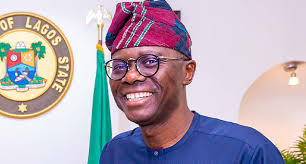On Sunday, March 24, 2024, I trudged to Ojokoro High School in Ojokoro LCDA of Lagos state. Ojokoro High School is the nearest Ounje Lagos distribution point to my residence. Ounje Lagos is Governor Babajide Sanwo-Olu’s laudable intervention to assuage the mounting hardship that has turned millions of Nigerians into beggars.
Ojokoro High School is about four kilometres from my residence in Alakuko, Lagos, but because I thought I could be turned back if I drove to the distribution center, I decided to make the journey on foot. It took me some 45 minutes to get to the distribution centre.
I had expected to be the odd man out in a sea of Nigerians toiling to eke out a living below poverty line. My projection was grossly off target. About 90 per cent of those at Ounje Lagos distribution centre at Ojokoro High School were from the middle class. Some even came with their cars. I could spot Toyota Highlanders and Honda Pilots. These are not cars for struggling people.
The reason for the invasion of the venue by the middle class was obvious. Lagos state government sold the food items at rock bottom prices.
The 5kg sack of rice was sold for N5,100. The market price of that quantity of rice is N9,600.
That is the price I got that morning from a friend who normally sells rice to me.
The price advertised on the posters announcing the food sales at a discount was N5,300. But the state government on that day inexplicably gave a discount of N200 and sold the rice at N5,100. A 900-gramms loaf of bread sold for N700 as against N1,400 in the market.
That probably explains why the centre was invaded by the middle class. Everyone who bought rice from Ounje Lagos on that day saved N4,500.
I do not know whether Lagos state government is subsidising the prices of food items at Ounje Lagos distribution centres or government is just selling at what should be the normal market price. The truth is that Ounje Lagos is a huge relief to everyone who labours to access it.
The scene at Ojokoro High Scholl on March 24 was very orderly. The managers of the venue were totally in control. I got there at about 10.30am when the queue was already very long.
But the man sharing the tally numbers considered my age and handed me number 117 when in reality I should have been given something close to 300.
In all, I spent about two hours to get a 5kg sack of rice for my family. That was because I am an old man. The delay was worsened by erratic bank network which frustrated payment through point of sales (PoS) equipment. At times it took 30 minutes to process one person’s payment.
If I had sent my son, he would have spent close to four hours on the queue.
The scene at the Ounje Lagos distribution centre was clearly a middle class gathering. I noticed people gathering around a highly educated young man who was lecturing everyone on the cause of poverty in Nigeria.
The young man’s argument was that Nigeria has no business with poverty. He contended that poverty in Nigeria was organised by the elite to put the poor in a position they can dictate to.
His argument sounded logical and it reminded me of what Aliko Dangote, President of the Dangote Group of Companies, has been doing since he became Africa’s richest man.
His policies have deliberately impoverished Nigerians and rendered them homeless in a bid to make them vulnerable. Five months ago, the founder of Bua Cement Plc told the federal government that Dangote makes 300 per cent profit by selling cement at N5,300 per 50kg bag. No one from Dangote Group contested that argument.
Three months after he made that statement, the price of cement surged to N15,000 in some parts of the country just as the exchange rate of the naira plummeted to N1,700 to the dollar.
The federal government knows that even at N5,300 per bag, Dangote was making 300 per cent profit. Government called a meeting and ordered cement manufacturers to revert to the old price. That order is yet to be obeyed.
Dangote is fleecing Nigerians and posing as a philanthropist at the same time. He is assuaging the problem he created by donating 1 million 10kg sacks of rice to the starving populace.
Those he has reduced to beggars are worshipping him for bailing them out of the throes of starvation, not knowing that he is responsible for their calamity.
Aliyu Wamakko, a former governor of Sokoto state and senator representing Sokoto North senatorial district, said something last week that should interest Dangote and the tacticians in the inflation war room of the Central Bank of Nigeria (CBN).
Wamakko, who was speaking at a Ramadan gathering, lamented that the naira has appreciated from N1,700 to the dollar in February 2024 to the current rate of N1,260 to the dollar, yet prices are remaining where they were in February.
The message that could be deciphered from Wamakko’s assertion is that the CBN is tormenting Nigerians unnecessarily with monetary policy instrument manipulations that have catapulted prime lending rates above 30 per cent.
Profiteering by manufacturers like Dangote, service providers, wholesalers and retailers is at the root of Nigeria’s surging inflation.
About three months ago, a Federal High Court in Lagos ordered the federal government to set up structures that would ensure price control.
Government is yet to obey that court order. Ironically, recent development in the foreign exchange market has clearly proved that profiteering causes more inflation than excess liquidity.
The time has come when government must abandon its free market economy and clamp down on profiteering manufacturers, service providers, wholesalers and retailers. That is the only way to fight Nigeria’s artificially induced inflation.




